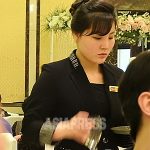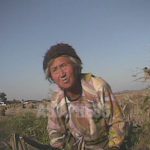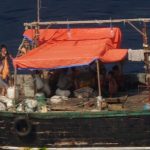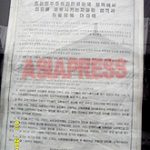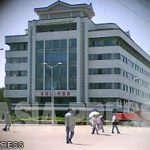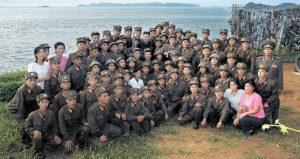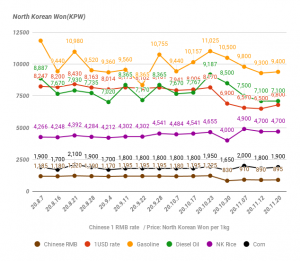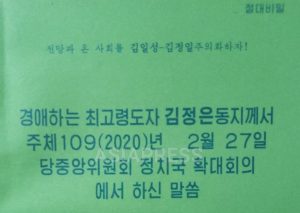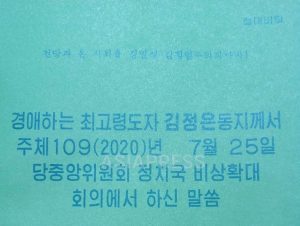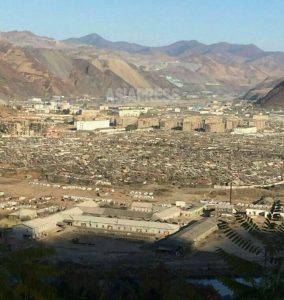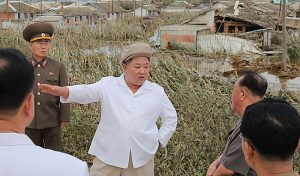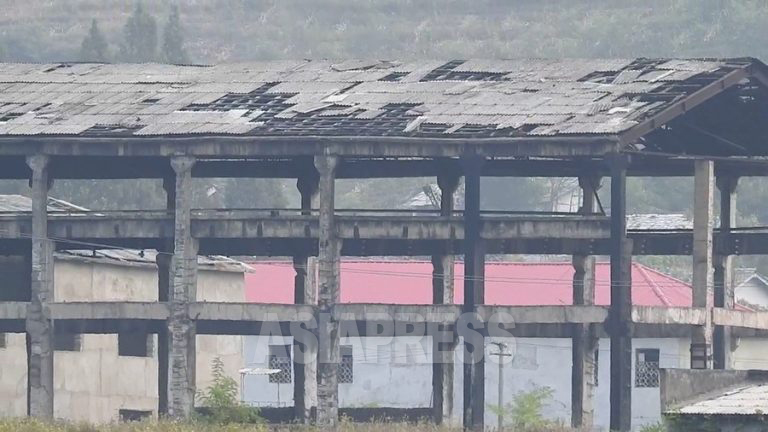
Thoroughly ruined Chongsoo Chemical Factory in North Pyongan Province. Taken by ISHIMARU Jiro from the Chinese side in July 2017.
The most sensitive sector to feel the effects of the economic sanctions is the fuel industry. The cost of gasoline and diesel doubled as the North Korean government enacted tighter controls on fuel supplies from April 2017, having anticipated the strict restriction of oil related products.The cost of a liter of gasoline peaked at KRW 2,692 at the end of January this year. (It plummeted to KRW 1,695 in February: ASIAPRESS investigation).
The sharp rise of fuel prices hit the military and ordinary people hard. As the military couldn't get the required fuel supplies from the government, they could not go to the collective farms to bring in the potato and corn crops from the harvests.
Reporting partner 'C', in Yanggang Province, reported "Originally, 'Rear Supply Units'were responsible for fuel supplies to the battalion and should have prepared vehicles to bring in the crops. But as there was no fuel, they used charcoal engines and oxcarts. It is also common that a delayed food supply encourages soldiers at checkpoints to extort food from locals. People in Yanggang Province are angry at the sharp rise in the price of timber for cooking and heating. Costs have soared due to the expense of transporting the timber to the cities. If a cart were left at the road side, people would steal it for firewood."
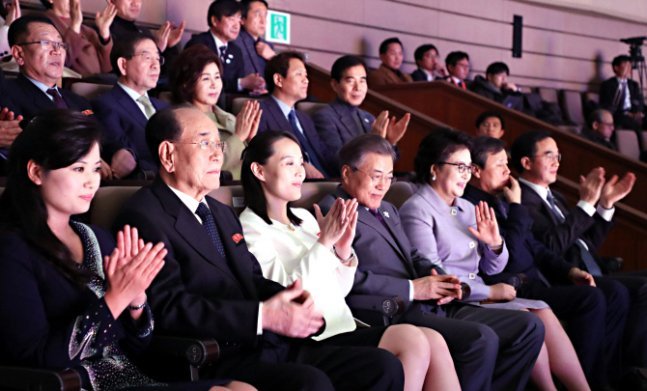
President Moon Jae-in and Kim Yo-jong watch a performance by the North Korean Art Company. Released by Blue House on February 11, 2018 in Seoul.
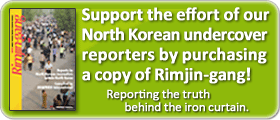 * Editor’s notes on North Korean reporters
* Editor’s notes on North Korean reporters
ALL REPORTS >>>
ARCHIVE(pdf) >>
DPRK MAP >>
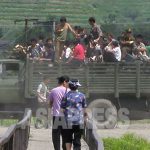
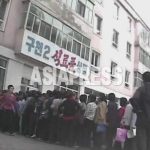
![[Video Report] What do the ordinary people eat in N.Korea? There are many types of food sold at hawker stalls. (Hawker stalls are individually owned food stalls)](https://www.asiapress.org/rimjin-gang/wp-content/uploads/2017/01/7777-150x150.jpg)
